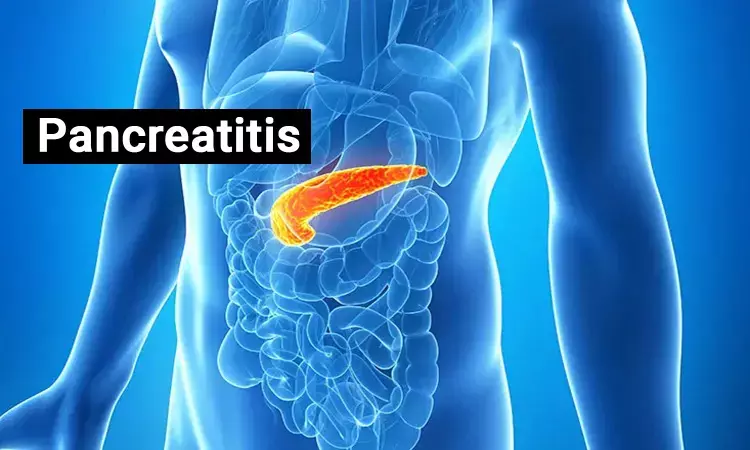- Home
- Medical news & Guidelines
- Anesthesiology
- Cardiology and CTVS
- Critical Care
- Dentistry
- Dermatology
- Diabetes and Endocrinology
- ENT
- Gastroenterology
- Medicine
- Nephrology
- Neurology
- Obstretics-Gynaecology
- Oncology
- Ophthalmology
- Orthopaedics
- Pediatrics-Neonatology
- Psychiatry
- Pulmonology
- Radiology
- Surgery
- Urology
- Laboratory Medicine
- Diet
- Nursing
- Paramedical
- Physiotherapy
- Health news
- Fact Check
- Bone Health Fact Check
- Brain Health Fact Check
- Cancer Related Fact Check
- Child Care Fact Check
- Dental and oral health fact check
- Diabetes and metabolic health fact check
- Diet and Nutrition Fact Check
- Eye and ENT Care Fact Check
- Fitness fact check
- Gut health fact check
- Heart health fact check
- Kidney health fact check
- Medical education fact check
- Men's health fact check
- Respiratory fact check
- Skin and hair care fact check
- Vaccine and Immunization fact check
- Women's health fact check
- AYUSH
- State News
- Andaman and Nicobar Islands
- Andhra Pradesh
- Arunachal Pradesh
- Assam
- Bihar
- Chandigarh
- Chattisgarh
- Dadra and Nagar Haveli
- Daman and Diu
- Delhi
- Goa
- Gujarat
- Haryana
- Himachal Pradesh
- Jammu & Kashmir
- Jharkhand
- Karnataka
- Kerala
- Ladakh
- Lakshadweep
- Madhya Pradesh
- Maharashtra
- Manipur
- Meghalaya
- Mizoram
- Nagaland
- Odisha
- Puducherry
- Punjab
- Rajasthan
- Sikkim
- Tamil Nadu
- Telangana
- Tripura
- Uttar Pradesh
- Uttrakhand
- West Bengal
- Medical Education
- Industry
New study associates Obesity with Pancreatitis

PHOENIX-- The obesity pandemic poses a unique set of health problems including pancreatitis. Obesity may not only increase acute pancreatitis incidence but may worsen acute pancreatitis severity according to new study.
Researchers at Mayo Clinic in Arizona have found that obesity is not only implicated in chronic diseases such as diabetes, but also in sudden-onset diseases such as pancreatitis. The study has been published in the the Journal of Clinical Investigation.
"In our study, we were able to demonstrate that fat within the belly is rapidly degraded during acute pancreatitis, but not during diverticulitis, despite inflammation," says Vijay Singh, M.B.B.S., a Mayo Clinic gastroenterologist.
Dr. Singh says while both diseases present with sudden belly pain and account for about 300,000 cases annually in the U.S., the rapid fat degradation that occurs in pancreatitis is triggered by a pancreatic enzyme called PNLIP. This enzyme can form fatty acids that cause vital body systems like circulation, kidney and lung functions to fail. Dr. Singh says this multisystem failure is much more common in acute pancreatitis than in diverticulitis.
Dr. Singh says obesity, which increases belly fat, also can worsen acute pancreatitis. He says this highlights the role of obesity not just in the development chronic diseases such as diabetes, but also in the development of sudden-onset diseases such as pancreatitis.
Dr. Singh says the study also found that unsaturated fats, such as oleic acid contained in olive oil and recommended by the Food and Drug Administration as being safer for human consumption, actually increase the risk of organ failure. At the same time, PNLIP, the enzyme in the pancreas that breaks down stored fat in fat cells was not abundant in cells specialized for fat storage.
"Our findings open the door to new therapeutic targets to treat pancreatitis and thereby prevent organ failure," says Dr. Singh. "By inhibiting PNLIP, we may be able to prevent severe pancreatitis, avoid prolonged hospitalizations and save lives."
Dr Kamal Kant Kohli-MBBS, DTCD- a chest specialist with more than 30 years of practice and a flair for writing clinical articles, Dr Kamal Kant Kohli joined Medical Dialogues as a Chief Editor of Medical News. Besides writing articles, as an editor, he proofreads and verifies all the medical content published on Medical Dialogues including those coming from journals, studies,medical conferences,guidelines etc. Email: drkohli@medicaldialogues.in. Contact no. 011-43720751


